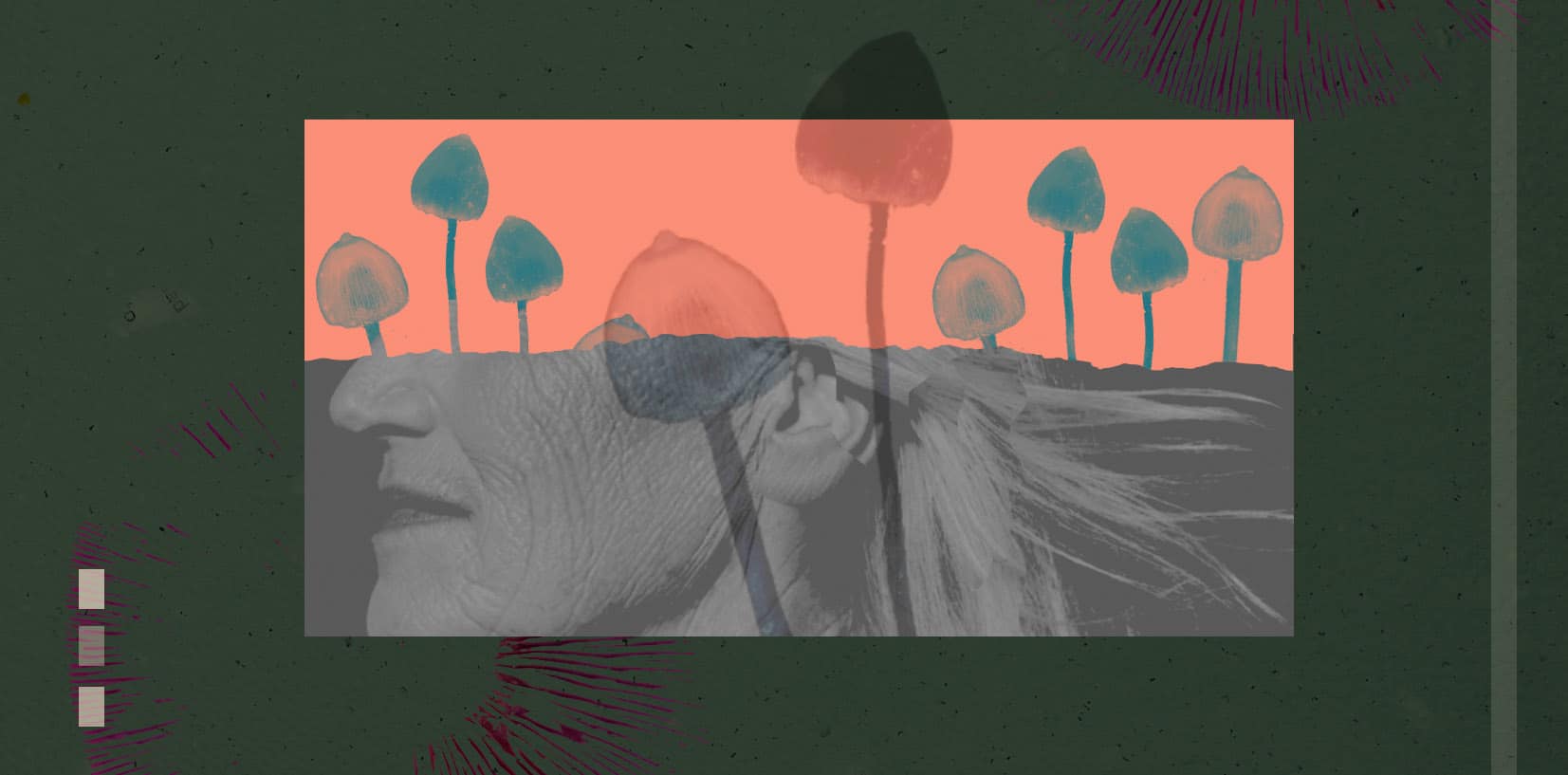- Why Colorado’s Natural Medicine Health Act is the Right Measure to Access Natural Psychedelic Medicine: Responding to Critics of NMHA - September 18, 2022
- Psilocybin Mushroom Policy Review Panel: 2021 Comprehensive Report - November 10, 2021
- Controversies Around California’s Psychedelic Decriminalization Law Senate Bill 519 - July 29, 2021
The year 2019 was a watershed year for efforts to reform the laws around psilocybin mushrooms, commonly referred to as “magic mushrooms.” Since psilocybin’s categorization in the 1970s as a Schedule I drug under US and international law, reform of laws related to psilocybin and other psychedelics had not been a significant focus of the drug policy reform community. However, in the spring of 2019, Denver became the first U.S. city to effectively decriminalize possession and cultivation of personal possession amounts of psilocybin. Oakland quickly followed Denver’s lead and went further by effectively decriminalizing all activities related to naturally occurring or entheogenic psychedelic substances. Also, in 2019, reform advocates in Oregon and California submitted proposed statewide ballot initiatives to allow voters to liberalize psilocybin laws through the 2020 ballot process.
This article summarizes the various reforms enacted in Denver and Oakland, along with summarizing the proposed new regulated models in Oregon and California. Controversial or groundbreaking provisions of each of these laws are briefly discussed.
Denver Psilocybin Decriminalization Initiative
The Denver Psilocybin Mushroom Decriminalization Initiative 301 (“I-301”) was organized by reform advocates in Denver, including Kevin Mathews, Matthew Duffy, Cindy Sovine, and others. The initiative went to a vote of the public on May 7, 2019 and passed by a narrow margin of 50.6% in favor out of over 170,000 votes. Denver passage of this measure was the first example in the nation of a ballot victory for psilocybin mushroom reform, or for any psychedelic drug, for that matter.
I-301 did three main things. First, it made enforcement of laws within the city of Denver prohibiting the personal use and possession of psilocybin to be the City’s lowest law enforcement priority. Next, I-301 prohibited Denver from spending any resources on enforcing laws against personal use and possession within the City. Finally, I-301 created a Psilocybin Mushroom Policy Review Panel to assess the impacts of the initiative on the City and issue a report to the City Council.
It is important to note that I-301 defined “personal possession” to include “the possession, storage or propagation of psilocybin by an adult for personal use.” This broad definition of personal possession makes both the possession and cultivation of psilocybin the lowest law enforcement priority. I-301 did not decriminalize the sale or public use of psilocybin and the initiative explicitly states that sale for remuneration remains illegal under state laws.
While Denver’s initiative is titled and commonly referred to as a “decriminalization,” in reality, all activities related to psilocybin mushrooms remain illegal both under the municipal law of Denver and under Colorado state law.
While Denver’s initiative is titled and commonly referred to as a “decriminalization,” in reality, all activities related to psilocybin mushrooms remain illegal both under the municipal law of Denver and under Colorado state law. However, by prohibiting Denver from spending any city resources to enforce these laws, the law amounts to a de facto decriminalization within the city of Denver. Since I-301’s passage in May 2019, there have not been any arrests of adults by Denver police related to psilocybin (two minors were arrested and charged with psilocybin possession in October 2019).
The following concerns have been expressed about I-301: (a) The initiative does not clarify what quantity one could possess and still be protected by the law. Could someone stockpile a year’s supply and still avoid prosecution? Denver police and prosecutors have said they are struggling with this ambiguity; (b) simple decriminalization does not provide a legal way to obtain psilocybin mushrooms without attempting to grow them yourself; and (c) the legality around sharing psilocybin or joining together to form cultivation coops remains unclear and will likely lead to some test cases under criminal law in the future.
Oakland
Shortly after Denver passed I-301, advocates in Oakland came together and asked the City Council of Oakland to pass a resolution decriminalizing all naturally occurring psychedelic substances in Oakland. The effort was spearheaded by Decriminalize Nature Oakland, which was started by local advocates including Carlos Plazola, Bob Otis Stanley, and members of ERIE including Larry Norris. On June 5, 2019, Oakland City Council adopted the resolution (“DNO Initiative”), making the enforcement of laws prohibiting the planting, cultivating, purchasing, transporting, distributing, possession or use of entheogenic compounds to be among the lowest law enforcement priorities for Oakland.
The DNO Initiative law is broader than Denver’s law because it applies to all entheogens, which includes ayahuasca, iboga, psilocybin, and any other forms of psychedelic compounds derived from cactus, plant or fungus.
The DNO Initiative law is broader than Denver’s law because it applies to all entheogens, which includes ayahuasca, iboga, psilocybin, and any other forms of psychedelic compounds derived from cactus, plant or fungus. Like the Denver initiative, the DNO Initiative prohibited the City from spending any resources for the investigation, detention, arrest, or prosecution of violations of state or federal law related to the use or possession of naturally occurring psychedelics, or entheogens. Personal possession and cultivation is decriminalized and no clear limits were set on what quantities are allowed in Oakland.
The resolution does not protect the commercial sale or manufacturing of entheogens. It does not protect possessing these materials in schools, driving under the influence, or creating a public disturbance. The DNO Initiative directs the City Administrator to report on the impact of this resolution after one year. It also calls upon the Alameda County District Attorney to cease any ongoing prosecutions of individuals charged with the use of entheogens.
The following concerns have been expressed about the DNO Initiative: (a) the initiative decriminalized all psychedelics, including peyote, without any meaningful involvement of Native Americans, some of who are concerned that this initiative could spur the continued unsustainable harvest of peyote across the southwest and peyote is a considered vulnerable species; and (b) the initiative both decriminalizes the cultivation and distribution of psychedelics but then talks in terms of not protecting any commercial activities, creating some ambiguity on the legality of these activities; (c) some believe this model is unlikely to prevail beyond very progressive cities like Oakland or Chicago, given that entheogens like ayahuasca and iboga are not very well known for the general public.
Chicago
In October 2019, the City Council of Chicago approved a resolution making the investigation and arrest of individuals involved with naturally occurring psychedelic substances to be the lowest priority for Chicago. Because the measure is a resolution, and not an ordinance, it is not enforceable under the city code. Therefore, while media widely reported that psychedelic plants had been decriminalized in Chicago, that is not truly the case. The measure was intended to provoke additional study into the issue through various city departments.
Oregon
The Oregon Psilocybin Program Initiative (“OR Initiative”) would create a regulated system of manufacture and sale of psilocybin products by licensed “Producers.”
The Oregon Psilocybin Program Initiative (“OR Initiative”) would create a regulated system of manufacture and sale of psilocybin products by licensed “Producers.” The OR Initiative is being led by the Oregon Psilocybin Society, founded by Portland area psychotherapists Thomas and Sheri Eckert. The OR Initiative is gathering signatures for placement on the 2020 statewide ballot and would allow for limited licenses for manufacturing psilocybin products, for facilitating psilocybin services, and for testing psilocybin products. The Oregon Health Authority (“OHA”) is tasked with developing standards for providing psilocybin services to adults 21 years of age and over through a process that consists of preparation, administration, and integration services.
All proposed psilocybin services must take place within a licensed psilocybin service center. Individuals may own no more than one manufacturing facility and five service centers. Until 2025, there is a two-year residency restriction on obtaining a psilocybin license under the initiative, so non-residents will not be eligible for licensure immediately. The OHA may prohibit marketing to the public. Local governments can ban manufacturing and service activities and can impose other reasonable regulations on these license types. Licensure can be denied to convicted felons if the conviction is substantially related to the fitness and ability of the applicant to carry out activities under the license. A special tax of 15% is imposed on retail sales.
Concerns expressed about the OR Initiative include: (a) there is no protection in this initiative for private cultivation, manufacturing, possession or use of psilocybin. Anyone caught with psilocybin outside of a psilocybin center could still be criminally prosecuted; (b) there is no formal role for advocates of reform in the OHA’s decision making process on what criteria are appropriate to license a provider, and many are concerned OHA could impose many burdensome requirements; (c) there are no provisions in this initiative for the sealing or expungement of prior criminal convictions; (d) there are confidentiality concerns, such as data collected in the program could be used against immigrants or others; and (e) provision centers are not allowed to be located within any city limits, so they would need to be in remote rural locations.
California
In 2019, a former cannabis entrepreneur, Ryan Munevar, started a campaign that has submitted two potential ballot initiatives to the California Attorney General that would overhaul California’s laws related to psilocybin. One of the initiatives is a simple decriminalization of psilocybin and the other is a fully regulated model of cultivation, distribution, and commercialized sale of psilocybin. The campaign has not decided which avenue to pursue at this time.
The simple decriminalization initiative would remove psilocybin from the criminal code. This initiative would not create any regulations regarding the possession, use, storage, cultivation, processing, or distribution of psilocybin, but would simply mean it is not a crime in California to engage in any of these activities.
This means adults over the age of 18 could cultivate and possess personal use amounts, and share psilocybin in personal use amounts, legally under California law.
The commercialized model can be summarized as treating psilocybin like any other agricultural product for adults over the age of 18. The initiative legalizes the personal, spiritual, religious, dietary, and therapeutic and medicinal use by adults, including the cultivation, manufacture, processing, production of edible products and extracts (with or without solvents) derived from psilocybin, distribution, transportation, possession, storage, consumption, social consumption, on-site consumption, public events, farmers’ markets, and retail sale, whether or not for profit. This means adults over the age of 18 could cultivate and possess personal use amounts, and share psilocybin in personal use amounts, legally under California law. The initiative would allow psilocybin mushroom businesses to be regulated by the California Department of Food and Agriculture (“CDFA”). The CDFA would regulate the cultivation, production, distribution, and sales of psilocybin, with a mandate to not engage in burdensome regulations that would make the operation of a psilocybin business commercially impracticable. CDFA shall begin issuing licenses no later than September 20, 2021. However, the initiative allows for local governments to place limits or bans on psilocybin mushroom businesses on the ballot in even-number years to potentially restrict such businesses locally.
The commercialized model also protects licensed health care providers engaged in psilocybin-assisted therapy and research.
The commercialized model also protects licensed health care providers engaged in psilocybin-assisted therapy and research. The initiative says licensed health care providers cannot lose their state licenses based on engaging in psilocybin-assisted therapy or research. The California Department of Public Health is required to work with harm reduction experts to create protocols for health care workers engaged in psilocybin mushroom therapy. No special or excise taxes on psilocybin mushrooms are allowed. The law also prohibits employers from discriminating against adults who use psilocybin and has provisions allowing for the expungement or sealing of criminal records related to psilocybin.
The following concerns have been expressed about the California initiative: (a) the initiative is a broad legalization and regulation of psilocybin that goes far beyond a therapeutic model and would allow largely unchecked access to anyone over the age of 18; (b) the initiative attempts to legalize psychedelic-assisted therapy in a very brief section that leaves a lot of uncertainty associated with its implementation; (c) the initiative does not define what quantity of personal possession is allowed, and this is likely to create uncertainty for adults and law enforcement; and (d) the initiative does not meaningfully address the social justice aspects of regulating psychedelics by providing for automatic expungement of past criminal justice records or any preferences in licensing for communities disproportionately impacted by the War on Drugs.
Conclusion
The elections in 2020 could be a watershed year for the reform of laws around psilocybin mushrooms. In addition to California and Oregon, the organizers of the Denver campaign are talking about running a statewide initiative as well. It is theoretically possible that, by the end of 2020, psilocybin mushrooms will be legal in three states. At a minimum, the public will be engaged in a serious discussion for the first time ever about these laws at the state and national level.
A few themes jump out based on a broad overview of the initiatives to date. While decriminalization efforts do very little to provide access to psilocybin and create significant uncertainty for the general public, they are important efforts that start a conversation around psychedelics. None of the initiatives to date have any dedicated attention to social justice issues, or the legacy of the drug war. Some consider the focus only on psychedelics as elitist because laws regarding other drugs are the main drivers of mass incarceration, particularly of people of color. Finally, whichever initiative allowing for therapeutic or adult use that succeeds at the state level first is likely to set a precedent and become a model for future initiatives. Therefore, getting these initiatives right at the outset is critical for creating and maintaining momentum for future change.
Art by Karina Alvarez.
Take a minute to browse our stock:
Did you enjoy reading this article?
Please support Chacruna's work by donating to us. We are an independent organization and we offer free education and advocacy for psychedelic plant medicines. We are a team of dedicated volunteers!
Can you help Chacruna advance cultural understanding around these substances?
















